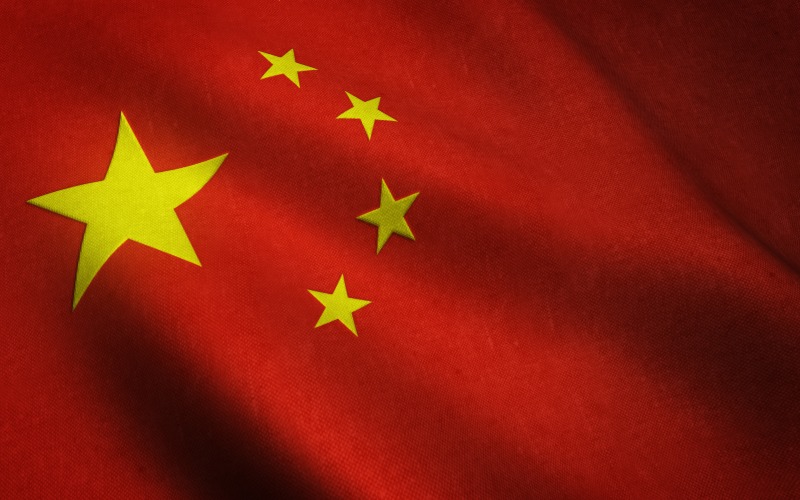China rolls out 'K visa' targeting global talents - here’s what Kenyans need to know

For Kenyan youth with ambitions beyond borders, the K visa may become a fast track to global exposure and, for China, a gateway to African innovation and perspective.
China has introduced a new visa category known as the K visa, aimed at attracting young science and technology professionals from around the world, a move being closely watched by ambitious Kenyan graduates, researchers, and tech entrepreneurs globally.
Launched this October, the K visa is part of a sweeping revision to China’s immigration policy, offering a flexible entry route to foreign talent in STEM fields: science, technology, engineering, and mathematics, with no requirement for an employer invitation or job offer.
More To Read
- Global power shifts are reshaping the Red Sea region and changing the rules of engagement
- Luanda Summit: Europe reinforces ties with Africa as competition intensifies
- UK announces biggest overhaul of its legal migration model in 50 years
- US bars Mandela Foundation Chair in latest diplomatic flashpoint with South Africa
- Africa’s rapid drone expansion promises high-tech warfare but struggles to achieve strategic results
- US revokes visa for Nigerian Nobel laureate Wole Soyinka after criticism of Trump
The visa aims to position China as a top destination for emerging global talent in innovation and research. It comes at a time when tech hubs across Africa, particularly in Nairobi, Lagos, and Kigali, are producing skilled, mobile professionals looking for global exposure.
“This could be a game-changer for young Kenyan scientists and engineers,” says Collins Oduor, a lecturer at a Nairobi-based technology institute.
“For once, we have a visa system that recognises talent, not just job placement. It opens a door for learning, networking, even collaboration.”
What is the K visa?
Under China’s newly revised entry and exit regulations, the K visa is designed for foreign nationals engaged in science and technology, education, and research activities. Unlike traditional work or student visas, it does not tie the applicant to a single institution.
The visa supports applicants with valid academic qualifications (usually a bachelor’s degree or higher), proven experience or potential in STEM-related fields, and a clear personal plan for academic, research, or innovation activities in China.
The visa may also allow for multiple entries, long-term stays, and possibly extensions, making it attractive for researchers, tech founders, and freelance consultants.
What makes it different?
The standout feature of the K visa is its independence from employer sponsorship.
In many countries, you need to secure a job offer before you can even apply for a visa, but with the K visa, young professionals are encouraged to enter China first, explore, build networks, and even find opportunities on the ground.
That flexibility is set to benefit freelancers, early-career researchers, and African students transitioning from study to work. It also removes a major bottleneck for international conferences, tech summits, and joint research programs hosted in China.
What Kenyans should prepare
For Kenyan applicants interested in the K visa, preparation will be key. Though the process is still being refined, here are some initial guidelines:
Academic credentials: Bachelor’s degree or higher in a relevant STEM field.
CV or portfolio: Proof of work, research, innovations, or startup experience.
Purpose statement: A clear plan, whether attending a conference, conducting research, or building partnerships.
Passport and documentation: Updated travel documents, health records, and identification.
Applicants do not need an employer invitation, but they should be able to explain why they want to work or research in China, and how it aligns with their field.
China's talent policies
China has been aggressively reforming its immigration and talent policies to attract more skilled professionals from abroad.
The K visa is part of its broader strategy to compete with Western nations in global talent acquisition, especially in areas like AI, green energy, robotics, and biotech.
It is also a response to growing demand within China for diverse, global collaboration, particularly in academic and high-tech industries.
As Chinese universities and firms expand international partnerships, the country is looking outward, and Kenya, with its rising number of STEM graduates, is part of that equation.
What is unclear
While the K visa is promising, some details are still emerging, including the exact age bracket defined as “young talent”, whether the visa can lead to permanent residence or longer-term work permits, how family members or dependents can accompany K visa holders, the length of the initial visa validity and the renewal process.
For now, China’s immigration ministry has advised interested applicants to check with their local consulates for the most updated procedures.
Top Stories Today














































